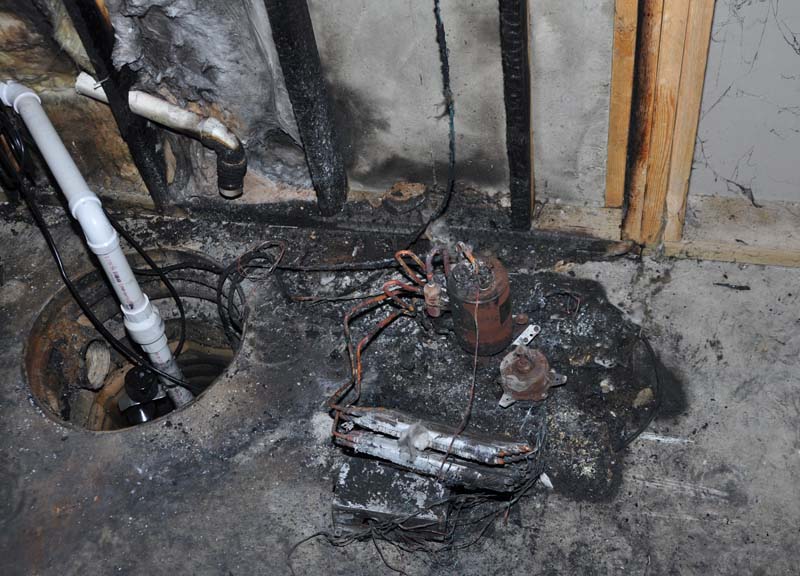(CN) — China-based Gree Electric and two of its subsidiaries have agreed to pay $91 million to resolve criminal charges they knowingly sold millions of defective dehumidifiers in the United States and failed to notify the Consumer Product Safety Commission.
"Consumers have reported more than 2,000 incidents involving Gree dehumidifiers, including 450 fires and more than $19 million in property damage,” according to a recent court filing. A Department of Justice spokesperson said the agency is not aware of any injuries. As part of the agreement, Gree has promised to compensate anyone who suffered property damage from the faulty products.
The agreements are the “the first corporate criminal enforcement actions ever brought under the Consumer Product Safety Act,” according to a Justice Department statement. The law was updated by Congress in 2008 to, among other things, give the agency the ability to pursue criminal penalties against companies for not reporting defective products or misleading investigators.
“This historic criminal enforcement action should serve notice that the CPSC will use its authority to the fullest to keep American families safe,” said CPSC Chair Alex Hoehn-Saric in a statement. “Failing to report dangerous products puts consumers at an unnecessary risk and will not be tolerated.”
Gree Electric, an appliance maker based in Zhuhai, China, is the largest air conditioner manufacturer in the word. It is a publicly traded company on the Shenzhen Stock Exchange. Until a few years ago, its majority shareholder was the state-owned Zhuhai Gree Group.
Co-defendant subsidiaries include Hong Kong Gree Electric Appliance Sales, which imported the dehumidifiers, and Gree USA, which sold them. Based in Southern California, Gree USA has agreed to plead guilty to one felony charge of willfully failing to report the defective products to the CPSC. Authorities indicted a pair of top Gree USA executives living in Southern California, Simon Chu and Charley Loh, on charges of failing to report the defective dehumidifiers. They have both pleaded not guilty and their trial is scheduled for March 2022 in Los Angeles.
More than 2 million Gree-manufactured dehumidifiers were sold in the United States between 2007 and 2013, under a slew of different brand names including Gree but also GE, Frigidaire and Kenmore.
They weren't recalled until September 2013, nearly a year after Gree executives first learned the products were defective.
The CEO of Gree USA saw a video of a burning Gree dehumidifier in 2012, according to a recent court filing. Alarmed, the executive sent the video to other Gree executives based in Hong Kong and China, writing that the video was “scarey [sic] to just watch” and a “very serious issue with GREE product quality.”
Gree USA then tested the dehumidifiers and found that they regularly caught fire due to the use of a substandard plastic that was not fire resistant enough. As the Gree CEO told a Hong Kong Gree manager, “the result is not like what you have told us…the result shows the units all can catch the fire and apparently the material is not according to [a universally recognized] standard! I don’t think the factory is telling us the fact and truth. . . .”
But the company kept the dehumidifier issue under wraps. In September 2012, Gree executives decided to delay any recall of the dehumidifiers by six to nine months. The reasoning, according to the court filing, was that “cooler fall and winter temperatures would help prevent Gree dehumidifiers from overheating and catching fire, and that there should be very few, if any, dehumidifier fires in the 6 to 9 months following September 2012.”
In fact, the fires continued. Gree finally announced a voluntary recall of the 2.2 million defective dehumidifiers sold in the U.S. in September 2013.
“Gree’s months-long delay in reporting known problems with their dangerous and defective dehumidifiers was both criminal and costly,” said Acting U.S. Attorney Tracy L. Wilkison, in a statement. “We will not allow companies to profit at the expense of consumers’ health and safety.”
The CPSC has handed out criminal penalties before, under different laws, though not very often and not since 2013, according to Rachel Weintraub, general counsel for the Consumer Federation of America, a nonprofit consumer advocacy group.
“Any time a company pleads guilty to a felony charge in the product safety world, it’s profoundly important,” said Weintraub. “And $91 million is a significant figure. And that matters, in order to be an effective deterrent.”
Subscribe to Closing Arguments
Sign up for new weekly newsletter Closing Arguments to get the latest about ongoing trials, major litigation and hot cases and rulings in courthouses around the U.S. and the world.









